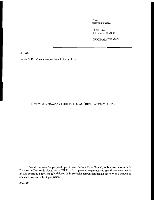الإطار الإستراتيجي لمنظمة الأغذية والزراعة للأمم المتحدة خلال فترة 2000-2015
Why Land Invasions will Happen Here too
Examines the current crisis in Zimbabwe, the land question in Zimbabwe and South Africa, the two land redistribution policies compared, poverty and the rule of law, populist policies and land invasions. Argues that despite the differences between South Africa and Zimbabwe, land invasions could occur in South Africa because of the failure to address deepening rural poverty and the continuing emotive issue of highly unequal and racially skewed land distribution.
How Land Reform Can Contribute to Economic Growth and Poverty Reduction: Empirical Evidence from International and Zimbabwean Experience
Examines international evidence on the relationship between asset ownership and growth and the impact of redistributive land reform, plus evidence of the impact of land reform in Zimbabwe. Asks why it appears that resettled farmers are among the poorest in the population. Concludes that asset redistribution can be a viable strategy to enhance growth, that the performance of resettled farmers in Zimbabwe is better than is conventionally believed, and that if a land reform programme is well designed, it can have a large impact on equity as well as productivity.
Land Resettlement in Zimbabwe
A Background Briefing covering the issue, the UK’s help for resettlement, Zimbabwe Government policies, UK land resettlement policy from 1997, DFID support for land resettlement – the way forward, other DFID support for poor people in rural areas. Says the UK believes that Zimbabwe needs land reform to reduce poverty, that the principles agreed at the 1998 Land Conference should be observed, and that the UK is willing to fund schemes which are focused on helping the poor and are transparent.
The Poverty Impacts of Land Titling in Kenya
Examines evolution of land tenure reform in Kenya since Swynnerton Plan of 1954 with particular emphasis on the poverty impacts of titling. Concludes that land titling risks a negative impact on the poor.
Etnicidad, "raza" y equidad en América Latina y el Caribe
Determinants of poverty in Mozambique, 1996-97
This report presents an analysis of the structural determinants of living standards and poverty in Mozambique, which is based on nationally-representative data from the first national household living standards survey since the end of the civil war: Poverty in Mozambique is predominantly a rural phenomenon and is pervasive, with over two-thirds of the population falling below the poverty line. The degree of regional variation of poverty within the country is striking.
Growth and poverty in rural China
Public investment, together with institutional and policy reforms, has contributed substantially to rapid economic growth in rural China since the late 1970s. This rapid growth has also led to dramatic reductions in rural poverty. In this study we use a simultaneous equations model and time-series (1978-97), cross-sectional (25 provinces) data to analyze the differential impact of different types of public investments on growth and poverty reduction in rural China.
The land question and land reform in Southern Africa
This paper discusses the nature of the land problem in the region and tries to situate the general land reform process in Zimbabwe within a regional context.It examines the four key land problems facing the region the discriminatory and insecure forms of land tenure that are found among variouslandownership regimes the increasingly imbalanced landownership structures and factors underlying itthe contradictory tendencies towards irrational land-use patterns through both the over utilisation and underutilisation of land the devotion of most prime lands and resources to production for externa
Sustaining livelihoods on Mongolia's pastoral commons
Under the socialist regime that prevailed until the start of the 1990s, Mongolia made great progress in improving human development indicators, and poverty was virtually unknown. Through innovative service delivery mechanisms to nomadic pastoralists, almost universal coverage of primary health care services was achieved and adult literacy reached 97%.Political and economic transition in the 1990s ushered in a rapid rise in asset and income inequality, and a third of the population have been defined as living below the poverty line since 1995.
How land reform can contribute to economic growth and poverty reduction: empirical evidence from international and Zimbabwean experience
Examines international evidence on the relationship between asset ownership and growth and the impact of redistributive land reform, plus evidence of the impact of land reform in Zimbabwe.Asks why it appears that resettled farmers are among the poorest in the population. Concludes that asset redistribution can be a viable strategy to enhance growth, that the performance of resettled farmers in Zimbabwe is better than is conventionally believed, and that if a land reform programme is well designed, it can have a large impact on equity as well as productivity. [author]




